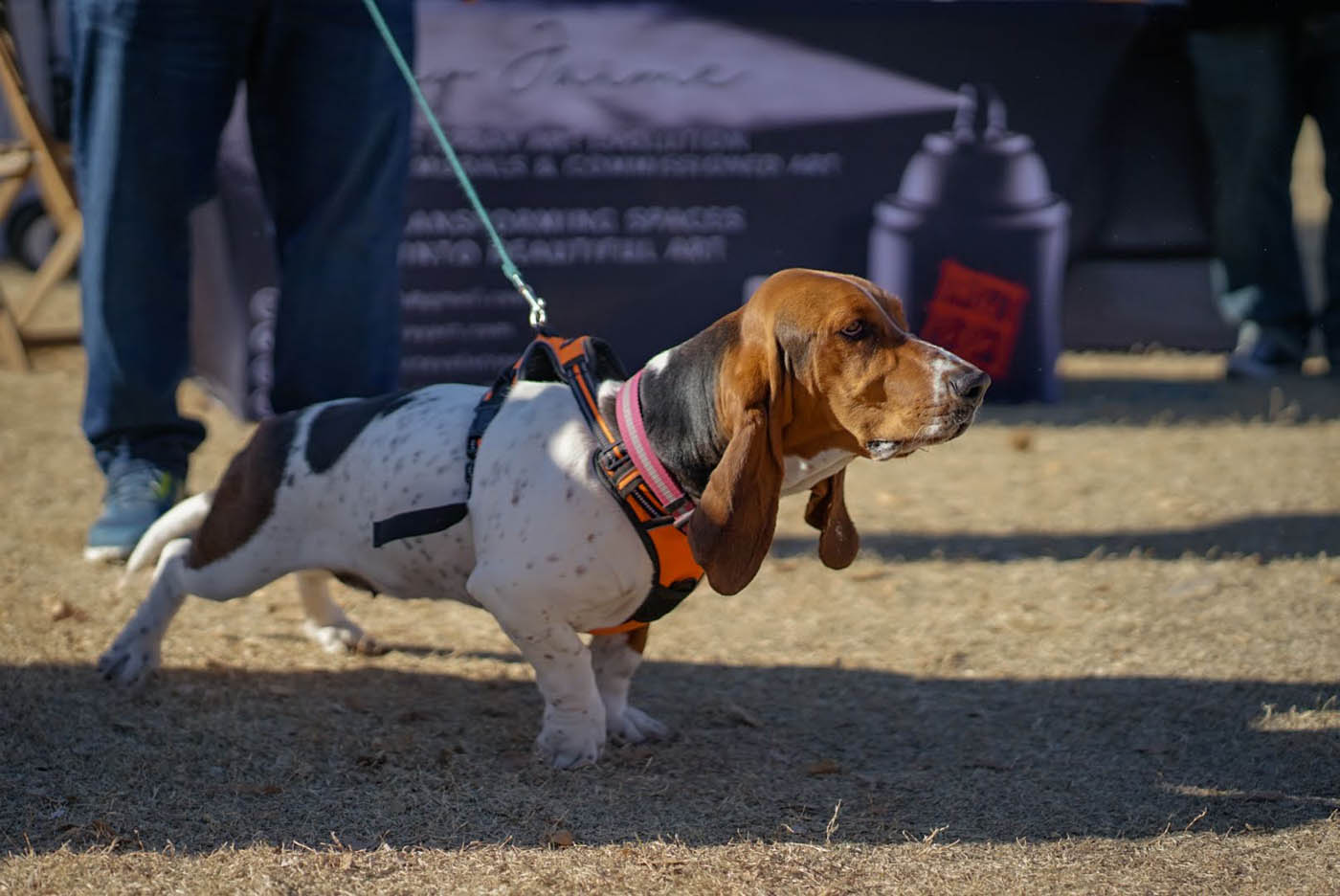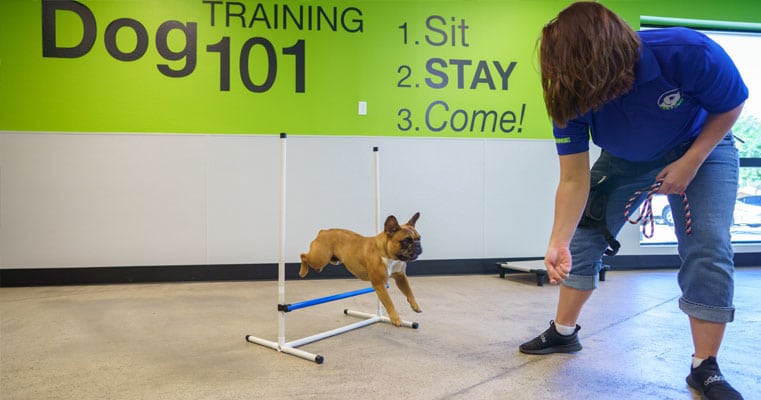Dog Training Charlotte NC: Your Course to a Mannerly Dog
Dog Training Charlotte NC: Your Course to a Mannerly Dog
Blog Article
Unlock Your Pet's Potential: Proven Pet Training Approaches for Success
Effective dog training is a nuanced procedure that pivots on recognizing canine habits and employing medically backed methods. Dog training. By including favorable reinforcement, establishing clear commands, and prioritizing socializing, canine owners can cultivate a productive partnership with their pets. Nonetheless, difficulties usually arise that require tailored services and a client strategy. Exploring these confirmed techniques discloses not only the potential for behavioral enhancement however additionally the deeper bond that can be developed in between proprietor and pet dog. What important methods must be taken into consideration to truly open your pet's possibility?
Understanding Dog Behavior
Understanding dog behavior is important for efficient training and promoting a favorable partnership between dogs and their proprietors. An extensive grasp of canine body movement, vocalizations, and social interactions is critical for acknowledging their requirements and feelings. Canines connect largely with non-verbal hints; as an example, a wagging tail might indicate excitement, while pinned ears can signify fear or submission.

Furthermore, environmental variables play a considerable duty fit a canine's actions. Adjustments in routine, brand-new surroundings, or the existence of unknown people can lead to stress or anxiousness in canines. Acknowledging these triggers makes it possible for proprietors to minimize adverse responses and establish suitable training approaches.
Ultimately, a deep understanding of dog actions lays the structure for successful training techniques, boosting both habits and the total bond between the canine and its proprietor. dog training charlotte. This expertise is vital for promoting a well-adjusted, delighted canine buddy
Positive Reinforcement Methods
Efficient training depends heavily on positive support techniques, which have been shown to yield substantial cause shaping wanted habits in dogs. This technique involves awarding a dog for exhibiting certain actions, thus boosting the probability that these habits will certainly be duplicated. Rewards can take various types, including deals with, praise, playthings, or play, relying on what inspires the private canine.

It is important to gradually eliminate rewards as the pet discovers the behavior, transitioning to recurring reinforcement. This strategy keeps the habits over time while preventing dependency on continuous benefits. By concentrating on favorable support, instructors can cultivate a trusting relationship with their dogs, promoting a healthy and cooperative training atmosphere that enhances general obedience and performance.
Developing Regular Commands
A basic aspect of effective pet training is the facility of constant commands. Consistency in commands is crucial for efficient communication in between the instructor and the pet. When commands are uniform, canines find out to connect particular words with preferred actions, which accelerates the training process and improves understanding.
To develop consistent commands, it is essential that all relative make use of the same terms and motions. For instance, if a single person makes use of "sit" while another states "take a seat," it can produce complication for the pet dog. Select clear, distinctive words for commands and make certain every person involved in the pet dog's training sticks to these selections.
In addition, rep is crucial. Enhance commands with regular technique, guaranteeing that the pet dog obtains sufficient possibilities to react appropriately. When a dog visit this site effectively follows a command, immediate positive reinforcement ought to follow. This might be in the kind of treats, praise, or play, strengthening the connection in between the action and the command.
Finally, be patient. Developing consistent commands takes time and initiative. With dedication and quality, you will aid your pet dog create a solid understanding of expectations, inevitably causing a well-behaved companion.
Socializing and Direct Exposure
Interacting socially a pet is essential for cultivating a well-adjusted and positive friend. This process involves revealing your pet to a selection of environments, individuals, and other pets to develop their social abilities and flexibility. Early socializing, preferably in between the ages of 3 to fourteen weeks, is crucial, as it lays the groundwork for a dog's future behavior.
Throughout socialization, objective to offer positive experiences in various setups, such as parks, busy roads, and homes with various other animals. Introduce your pet to different stimulations, consisting of noises, sights, and scents, guaranteeing that each encounter is rewarding. This direct exposure helps minimize fear and stress and anxiety, paving the method for a more resistant canine.
Engaging in regulated team play sessions with various other pets can also boost social abilities, teaching your animal appropriate interactions and borders. Prioritizing socializing will substantially add to your pet dog's general joy and habits throughout their life.
Conquering Common Educating Difficulties

Dogs may struggle to focus in active or strange setups. Progressively desensitize your canine to disturbances by starting training in a silent atmosphere and gradually presenting even more stimulations as they become proficient.
Additionally, behavioral problems like jumping or extreme barking can come to be irritating. Address these by showing alternate behaviors, such as sitting steadly when greeting guests. Consistency and perseverance are crucial; strengthen preferred habits constantly and prevent abuse, which can cause confusion.
Last but not least, identify that each canine is distinct, and training timelines may vary. Tailor your strategy to your canine's private demands, and seek professional guidance if required. With willpower and the best approaches, getting over these obstacles can result in a well-trained, happy canine companion.
Conclusion
In final thought, unlocking a pet dog's possible necessitates an extensive method that incorporates an understanding of canine actions, the application of favorable reinforcement techniques, basics and the facility of regular commands. Early socialization and direct exposure to varied atmospheres additionally enhance a dog's versatility and confidence. By dealing with common training challenges More Info with customized methods and perseverance, a cooperative and harmonious connection in between canine and trainer can be cultivated, inevitably resulting in a mannerly friend qualified of prospering in different situations.
Effective dog training is a nuanced procedure that hinges on understanding canine habits and employing medically backed techniques.Recognizing pet dog actions is important for effective training and cultivating a positive connection between pet dogs and their proprietors.Efficient training depends heavily on positive support methods, which have been revealed to produce significant results in forming desired behaviors in pet dogs. When commands are consistent, pets learn to connect details words with preferred behaviors, which increases the training procedure and enhances understanding.
In conclusion, opening a pet's potential necessitates a comprehensive strategy that incorporates an understanding of canine habits, the application of positive support strategies, and the establishment of constant commands.
Report this page